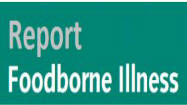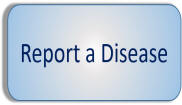County of Los Angeles
Department of Public Health
Acute Communicable Disease Control
313 N. Figueroa Street, #212
Los Angeles, CA 90012
Phone: (213) 240-7941
Fax: (213) 482-4856
Email:acdc2@ph.lacounty.gov
|
|
|
| Public Health has made reasonable efforts to provide accurate translation. However, no computerized translation is perfect and is not intended to replace traditional translation methods. If questions arise concerning the accuracy of the information, please refer to the English edition of the website, which is the official version. |

 Listeriosis is a disease transmitted primarily through consumption of
food contaminated with Listeria monocytogenes, a gram-positive
bacterium. L. monocytogenes is found in soil and water, and can
contaminate raw foods (e.g., uncooked meats and vegetables), as well as
processed foods that become contaminated after processing (e.g., soft
cheeses and cold cuts). Unpasteurized (raw) milk and foods made from
unpasteurized milk may also contain the bacterium. Common symptoms of
listeriosis include fever, muscle aches, headache, nausea, diarrhea, and
neck stiffness. A case of nonperinatal listeriosis is one that occurs in
persons other than pregnant women and/or their fetuses, neonates, or
infants up to 42 days after birth. Historically, nonperinatal
listeriosis presents as meningoencephalitis and/or septicemia, primarily
affecting elderly and immunocompromised persons, such as those with
cancer or HIV, and those on immunosuppressive therapy.
Listeriosis is a disease transmitted primarily through consumption of
food contaminated with Listeria monocytogenes, a gram-positive
bacterium. L. monocytogenes is found in soil and water, and can
contaminate raw foods (e.g., uncooked meats and vegetables), as well as
processed foods that become contaminated after processing (e.g., soft
cheeses and cold cuts). Unpasteurized (raw) milk and foods made from
unpasteurized milk may also contain the bacterium. Common symptoms of
listeriosis include fever, muscle aches, headache, nausea, diarrhea, and
neck stiffness. A case of nonperinatal listeriosis is one that occurs in
persons other than pregnant women and/or their fetuses, neonates, or
infants up to 42 days after birth. Historically, nonperinatal
listeriosis presents as meningoencephalitis and/or septicemia, primarily
affecting elderly and immunocompromised persons, such as those with
cancer or HIV, and those on immunosuppressive therapy. 
